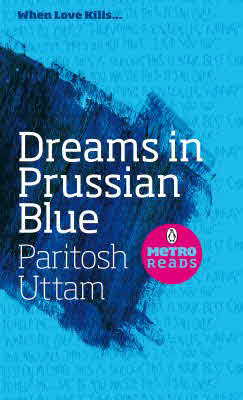by P.R.Viswanathan
[box]Some people that you meet tend to leave unforgettable impressions in your mind for years together. We wouldn’t say more and let P.R.Viswanathan do all the talking with his words![/box]What a week it was! Everything that I wanted to do seemed to happen.
Dhawan
It was three years after my selection as an IPS Officer. I was posted to Bombay and one of my first actions was to arrest Dr. Dhawan, Controller of Drugs. As I ascended the stairs at Old Custom House, I was filled with a great sense of duty and was very conscious of justice being done. Of course, I enjoyed the drama too and rather fancied myself in police uniform. I entered his office, firmly pushing aside the protesting secretary. A huge mountain of a man, Dhawan was all bluff and bluster, when I introduced myself and stated my purpose. “What do you mean, I am under arrest? On what charges?” “Corruption, the warrant is here. All further talk will be at the station, Dr. Dhawan.” “Well,” he said, “you see all these papers,” indicating his massive work-table. “At least, you will allow me to call my deputy and hand over.” “Go ahead,” I replied, “but please make it brief. I give you 15 minutes and I am not leaving the room.”
The man was fairly squirming by now so I left him alone, averted my eyes, sat on one of the chairs and lit a cigarette without seeking permission as I usually do. In five minutes, a slim man in a half bush-shirt entered, who was introduced to me as the Deputy Controller of Drugs. I gave the curtest of nods in his direction. Dr. Dhawan informed him of the arrest. Some five minutes later, we were leading him out into the waiting police van.
Chitnis
That was on Tuesday, my lucky day. The next day, I was returning from the airport after seeing off a relative and was looking for a taxi. I saw this youngster of 20-something being refused by a third taxi. Had I been in uniform, my very presence would have been good enough; no taxi would have dared refuse. I decided to intervene and within a minute, my young friend was getting into the taxi, when something made me ask: “Can I join you? I am going slightly further to Mahim so I can drop you at Bandra.” The youngster welcomed my suggestion and we drove out of the airport into a massive traffic jam on the Western Express Highway. We had plenty of time to talk. The youngster (Vivek Chitnis) had just graduated and was keen on a post-graduate degree to further his employment prospects. However, his father had retired and while they were not exactly poor, it would help a lot if he could earn some money. There was something very appealing in the diffident young man’s face and talk that held me. “Where was your dad working? When did he retire? “He was in Customs sir; worked as Appraiser at the airport. He retired two years back.” The taxi had reached the Kherwadi signal and Vivek said he would get down there. As I shook hands, I told Vivek: “Let me see what I can do for you. You must study and shouldn’t have to worry about money.” That very afternoon, I spoke to a few people and arranged for a part-time job for Vivek. I also decided that I would personally pay for his studies for two years. It would not be a major sum. I called up Vivek at his home and told him. He couldn’t contain himself and was profusely thanking me. In turn, I thanked him for the opportunity to be of help and I meant it.
Almeida
I was still suffused with that after-glow that you feel when you have been of help to a fellow human being, particularly one at the threshold of life. The phone rang and a pleasant voice addressed me with a rush of words: “Is that Mr. Vishnu Mohan? Good evening sir! My name is Angelina Almeida. I run an NGO in Mahim. Mrs. Valerine D’Costa talked about you and said I might be able to persuade you to attend a function we are hosting for the first batch of children who have completed a year of school education with our help. It is on Friday; I am so sorry to be giving you such short notice Mr. Mohan. Please do accept. The children will feel very happy to hear a few words from a policeman.” “Excuse me Ms. Almeida. Am I to be a chief guest or something?” “Yes, of course! Sorry, didn’t I mention that? So remiss of me! Will you come?” I cannot say I took very well to the idea, having spent the better part of my college days making fun of chief guests and others of that ilk. However, I found myself answering: “The cause itself is good enough, Ms. Almeida. And when you mention the name of my old school teacher, I take it as an order.”
In point of fact, it was also something in the lady’s voice that really persuaded me and when, on Friday, I landed at St. Michael’s and saw Angelina Almeida in person I was not one bit disappointed. She was undoubtedly very young and very good-looking but her main attraction was her gentle unruffled nature and kindly eyes. For once, an NGO seemed to have got what it badly needed. The sector quite often attracts the most awful, supercilious, holier-than-thou matrons. When we entered the room, which was the NGO’s office and also the venue for the day’s function, the students were just arriving and the function was still ten minutes away. So I sat chatting with Ms. Almeida (by now Angelina) and was asking her the usual questions about family. “Mother and father are both retired. She was a teacher at St. Stanislaus. Father was Assistant Collector with Customs. We have been in Mahim all our lives.”
I asked her about the NGO. She was working full time for it. Did she get paid? “No it is purely voluntary. I get paid my expenses”. “Not always”, she added, with a laugh. How was the NGO funded? “Voluntary contributions from some individuals – mainly Dad’s contacts but he says so few of them are now left. I am starved of funds. I have been able to line up just about half the amount that my programme needs for the next year.” “I will see what I can do, Angelina. Go ahead with all your plans.” When I returned home, I placed a few phone calls. The following Tuesday, Angelina called up to thank me brokenly. Two of my friends had handed her cheques – enough to cover the coming year’s expenses. In turn, I thanked her for the opportunity to be of help and I meant it.
The truth
It was 1973. I was a young lad of 22 and my father was seriously ill. In fact, he was dying. His Adrenal Gland had gone for a toss and appeared to have totally stopped production of the hormone Adrenaline that gives human beings their energy. The doctor at Jaslok wanted to be sure of his diagnosis and prescribed an injection called ACTH to confirm it. This drug was not available in India and so we called up my sister and brother-in-law in Pittsburg, USA and asked them to send the stuff post-haste, by air. They did, for three days later, Hyder Ali from Swissair called at 9 am to say that a parcel had arrived with instructions that it should be refrigerated in 24 hours. He asked us to collect the parcel as early as possible. Then commenced a drama, which ended 12 hours later at about 8 pm! During this time, I came in contact with three characters. I needed a no-objection certificate from the Controller of Drugs. I spent the morning travelling to Custom House and filling up the import license form, which I then took to the Controller, Dhawan for the necessary endorsement. I could meet him after about an hour and a half of waiting. He refused asking why we needed 10 injections; only one would do. My sister, to be on the safer side, had sent not one but ten ampoules of the stuff. I told Dhawan about my father’s precarious state of health and pleaded with him for kindness. It fell on deaf ears. Finally, I made a suggestion. Release only one injection. Donate the remaining nine to a hospital or destroy them. I cannot remember his words but he picked up the import license that I had placed on his table and threw it at me. I glared helplessly and walked out. It was past 4.30 pm. The day was drawing to a close.
I called home and told father about it. Normally excitable, he took it calmly. He was a great one for out-of-the-box thinking. He asked me to find out the names and phones of one or two custom officers on the premises. From the public phone, where I was speaking, I could see a nameplate outside a cabin, which read “……..Almeida, Assistant Collector of Customs”. I persuaded Almeida’s peon to give me the Saheb’s phone number. Father called and I don’t know what he spoke but within 10 minutes, I was summoned to the cabin. Almeida was a middle-aged bespectacled man dressed in a full sleeve shirt with a tie – a quiet, smiling and dignified presence. I gave the briefest of brief explanations. He listened and said: “Please go to Santacruz Airport immediately and meet the Appraiser of Customs. His office closes at 6 pm. I have spoken to him and he will help you.” I had reached the door, when Almeida’s voice stopped me: “Son, don’t worry. I am sure your father will be fine.” I fought back tears and stammered my thanks. I looked at my watch as I rushed out. 4.55. I had to reach the airport by 6 pm. I took a decision, which any true Bombayman in my position would have done. No taxi! I boarded the train at Churchgate. For all that, when I reached the airport, it was 6.05. My heart sank as I rushed in. At 6.10, I was sitting before Appraiser Chitnis – a humble looking man with a constant smile. “We have been waiting for you, my staff and I, Almeida Saheb called.” He then handed over to me a form, which was a simple request to release the consignment against my bond that I will fulfill all customs formalities, if any, in the next 48 hours. As it happened, there were no formalities that I was called upon to fulfill. So what was Dhawan talking about? As I left his office to pick up the consignment, Appraiser Chitnis told me: “We will pray for your father.” Almeida’s good wishes and Chitnis’ prayers gave my father no more than 10 months but they lightened my burden and upheld my faith in human nature. That is the truth, that eventful day in 1973. Not any of the other stories; none of them is based on fact. Dr. Dhawan was not charged with corruption. I have not been of any help to Vivek Chitnis and Angelina Almeida. Indeed! I have never met either of them; I don’t even know whether they exist. And above all, I am not a police officer; never was one. But they (Dhawan, Chitnis and Almeida) have been the subject of recurrent dreams. There! Dear reader, I have told you all. I have unburdened myself. I am relieved. The children of Almeida and Chitnis are, I am sure, getting along very well and don’t need any help from me. May their tribe increase! As for Dhawan, I have decided to forget it. May his children lead happy lives! Maybe it was one of his off days.
Pic : Jeff Kubina – http://www.flickr.com/photos/kubina/
[facebook]share[/facebook] [retweet]tweet[/retweet]






